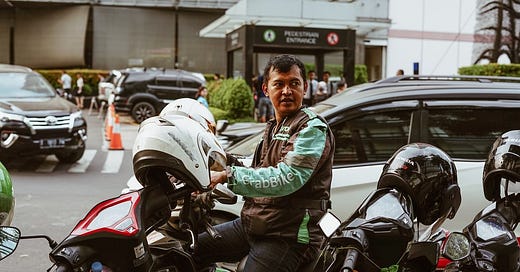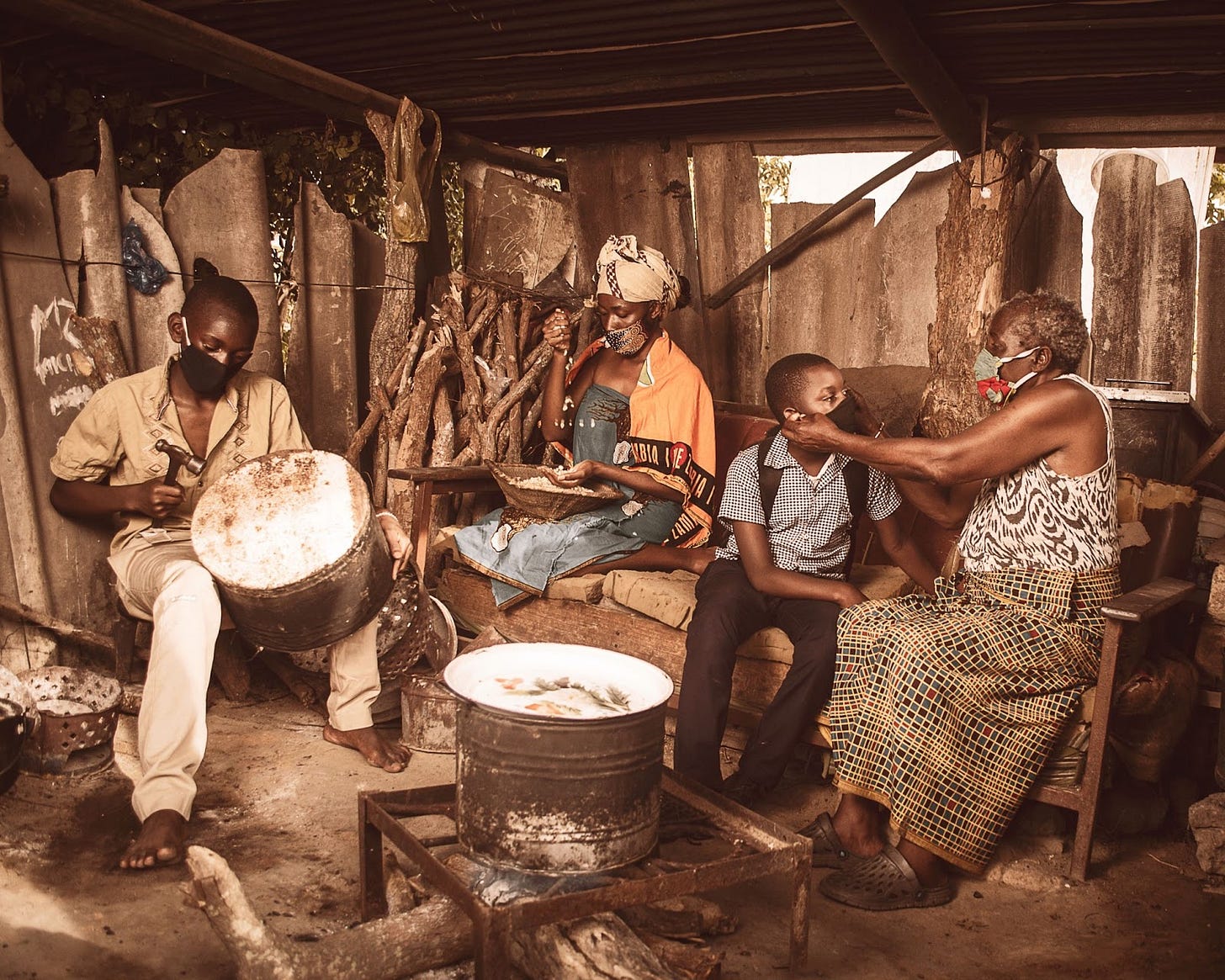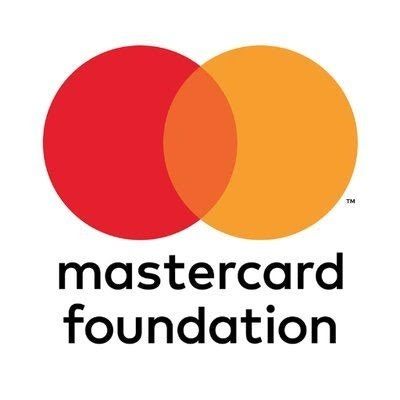Emerging Markets Daily - May 17
SE Asia E-Commerce Wars Heat Up, Supply Chains Strained on Global Demand, Inflation Stalks EM, Chile Center-Right Loss, Saudi Tech Startup Preps IPO, Zain Verjee on CovidHQ Africa
The Top 5 Emerging Markets Stories from Global Media - May 17
Southeast Asia Ride-Hailing Wars Heat Up As Gojek Announces Merger with E-commerce Giant Tokopedia in Indonesia
The Straits Times
“Ride-hailing company Gojek, arch rival of Singapore-based Grab, has announced a merger with Jakarta-based Tokopedia, Indonesia’s largest e-commerce company by value of transactions.”
“Gojek has expanded into offering other services such as digital payment and food deliveries.”
“…The merged entity, called GoTo, had a combined gross transaction value of over US$22 billion (S$29.4 billion) in 2020. It has over two million ride-hailing drivers and more than 11 million merchants…”
“Cut-throat competition in the digital business in Indonesia has intensified in the areas of food delivery, e-commerce and payment services, which are dominated by three groups of players led by Gojek, Grab and Shopee. The latter two are Singapore based.” Wahyudi Soeriaatmadja reports
Global Demand Surges, Straining Supply Chains, Possibly Stoking Inflation
Bloomberg
“A year ago, as the pandemic ravaged country after country and economies shuddered, consumers were the ones panic-buying. Today, on the rebound, it’s companies furiously trying to stock up.”
“Mattress producers to car manufacturers to aluminum foil makers are buying more material than they need to survive the breakneck speed at which demand for goods is recovering and assuage that primal fear of running out. The frenzy is pushing supply chains to the brink of seizing up. Shortages, transportation bottlenecks and price spikes are nearing the highest levels in recent memory, raising concern that a supercharged global economy will stoke inflation.”
“Copper, iron ore and steel. Corn, coffee, wheat and soybeans. Lumber, semiconductors, plastic and cardboard for packaging. The world is seemingly low on all of it. ‘You name it, and we have a shortage on it,’ Tom Linebarger, chairman and chief executive of engine and generator manufacturer Cummins Inc., said on a call this month…”
“The difference between the big crunch of 2021 and past supply disruptions is the sheer magnitude of it, and the fact that there is — as far as anyone can tell — no clear end in sight. Big or small, few businesses are spared. Europe’s largest fleet of trucks, Girteka Logistics, says there’s been a struggle to find enough capacity. Monster Beverage Corp. of Corona, California, is dealing with an aluminum can scarcity. Hong Kong’s MOMAX Technology Ltd. is delaying production of a new product because of a dearth of semiconductors.”
“For anyone who thinks it’s all going to end in a few months, consider the somewhat obscure U.S. economic indicator known as the Logistics Managers’ Index. The gauge is built on a monthly survey of corporate supply chiefs that asks where they see inventory, transportation and warehouse expenses — the three key components of managing supply chains — now and in 12 months. The current index is at its second-highest level in records dating back to 2016, and the future gauge shows little respite a year from now. The index has proven unnervingly accurate in the past, matching up with actual costs about 90% of the time.” Brendan Murray, Enda Curran, and Kim Chipman report.
Inflation and China’s Slowing Stimulus Could Spell Trouble for Emerging Markets
Barrons
“Inflation—and the possibility of higher U.S. rates and a stronger dollar—combined with a slowdown in China’s credit cycle could spell trouble for emerging markets broadly.”
“Despite a rise in commodity prices that help resource-rich emerging markets, the asset class has lagged behind global markets in recent months as investors have focused more on a shakier outlook for a global economic recovery, antimonopoly measures in China, and rising local lockdowns in India as a Covid outbreak upends recovery prospects. The iShares MSCI Emerging Markets exchange-traded fund (EEM) is down 8.4% in the past three months, compared with the roughly 4% gain in the S&P 500.”
“Pressure on these markets could continue through the year. In HSBC’s latest EM Sentiment Survey released a couple of weeks ago, 34% of investors said they were bullish about emerging market prospects over the next three months compared with 73% at the beginning of the year.” Reshma Kapadia reports
Chile's Govt in Shock Loss as Voters Pick Independents to Draft Constitution
Reuters
“Chile's center-right ruling coalition suffered a shock loss on Sunday night after failing to secure a critical one-third of seats in the body that will draft the country's new constitution.”
“With 90% of the votes counted, candidates backed by President Sebastian Pinera's centre-right Chile Vamos coalition had won only a fifth while independents picked up the most votes. New proposals will require two-thirds approval and without a third of the delegates, the government will struggle to block radical changes to the constitution unless it can forge new alliances.”
“…The vote to pick 155 citizens to rewrite the constitution was borne from fierce protests that erupted over inequality and elitism in October 2019. The current constitution drafted during the 1973-1990 dictatorship of Augusto Pinochet is widely perceived to favor big business over the rights of ordinary citizens.” Aislinn Laing, Fabian Cambero and Dave Sherwood report
First Saudi Tech Startup That Could Go Public Picks HSBC for IPO
Arabian Business/Bloomberg
“Saudi food delivery firm Jahez has hired HSBC Holdings Plc’s local unit to help manage what could be the first listing by a tech start-up in the kingdom.”
“Jahez International Company for Information Technology picked HSBC Saudi Arabia as the sole financial adviser and global coordinator for its potential IPO on Nomu, the Saudi stock exchange’s secondary market, which imposes lighter listing requirements to encourage smaller businesses and start-ups to raise equity.”
“Founded in 2016, the homegrown firm serves around 2 million customers in the kingdom, and processed about 20 million restaurant orders through its app in 2020, it said on Monday, without disclosing details about its potential valuation. It closed a $36.5 million funding round last year.”
“Jahez is the biggest locally owned player in the kingdom, competing with the likes of Uber Technologies Inc.-owned Careem Now and Delivery Hero SE-backed Hunger Station and Talabat. Jahez has also been expanding in other areas such as last-mile logistics and cloud kitchens.”
“The IPO could add to a string of listings in Saudi Arabia, where companies are taking advantage of investors’ demand for new offerings and as state entities look to raise money to bankroll efforts to diversify the economy.”
“Saudi grocery delivery app Nana also raised $18 million last year, tapping investors including venture capital fund STV and Middle East Venture Partners to expand across the Middle East.” Bloomberg/Arabian Business reports.
New Covid Africa Site Launched by Renowned International Journalist Zain Verjee and MasterCard Foundation
We are delighted to see the latest initiative by Emerging World friend, fellow traveler, international journalist, and media entrepreneur Zain Verjee. Her media outfit has partnered with MasterCard Foundation to launch a new digital platform devoted to Africa’s perspectives and storytelling re: the COVID pandemic.
CovidHQ Africa—Africa’s Pandemic Stories You Won’t Find Anywhere Else
As Zain says in her own words: “We intend for this platform to be a place where Africans not only obtain relevant information about COVID-19, but also feel empowered by the stories of accomplishment and survival in the face of significant adversity. We want to deal openly with tough stories like depression and mental health, in addition to highlighting positive solutions and innovations, and the latest updates on vaccines in Africa. This platform was designed and built to inform and inspire.”
Frankly, Zain has been informing and inspiring many of us for a long time, both in her many years as a correspondent and anchor at CNN and her more recent work as an entrepreneur, African media leader, mentor, and communications strategist with Zain Verjee Group. Zain was born and raised in Kenya, and she has been on a journey over the past few years to both tell African stories and to empower her fellow Africans to tell their own stories. This is underscored by the launch of her first company aKoma (which shuttered in 2020), and the powerful delivery on African storytelling as the crux of her 2019 TED talk—Why the Most Important Person in Africa is the Storyteller.
We reached out to Zain to talk about COVID HQ Africa. Here’s what she told Emerging World:
Capturing the Authentic Voice of Africans
“CovidHQafrica.com is an important site for the African continent. First it is a data and information site. We are able to track reported infection rates on the continent with an easy and clean user experience, sourced via WHO. The site also focuses on basic Covid facts, and on information required about vaccines.”
“Second, it captures the authentic voice and narrative of Africans who are managing life under the extraordinary circumstances of COVID. The stories and content are intended to capture the realities, experiences, innovation, resilience and solutions we are working with. Some are unique, others are universal. All are honest and real and profound in this extraordinary time.”
“The HQ editorial team prioritizes stories around mental health, gender and innovation. We also believe that the most important person in Africa is the storyteller, so we encourage and engage creatives to tell their stories, and messages with us.”
“Mastercard Foundation has been the most effective of all foundations from a messaging and engagement viewpoint in Africa since this pandemic hit. They are partnering with us to bring this platform to the continent, and the world, and ensuring the HQ team have the room and independence to shape a first class editorial operation, and this platform is the result. We want to encourage more contributors to the platform, please reach out and visit the website for more information on how to submit yours.”
What the Western Media Misses About Africa
“Western media tends to put resources into stories that are familiar in Africa: Civil war, corruption, tribalism. All the usual suspects. It can be quite disingenuous as those topics are relevant, but not indicative of the broader and more realistic picture of the continent. A lot more is going on that should be highlighted.”
“My old network CNN does a good job with its feature programming in Africa, although I sense there are opportunities to do more and better. There has been a greater sophistication and awareness among western journalists who want to tell fresher, more nuanced stories on Africa especially in the innovation and economic arenas. However, the commitment and resources western media puts in Africa is very negligible for a continent with fifty four diverse countries and a huge variety of cultures. We have to own our own stories and take control. In its own small way COVIDHQAfrica.com is doing that—with the right mindset and some muscle.”
Photo Courtesy: CovidHQ Africa
What Energizes Zain in the Morning (We asked)
“What energizes me in the morning, (other than my Rwandan Gorilla coffee) is that in my small corner of the world, I am in a position to affect perceptions of Africa, to encourage (and pay) African storytellers, to share my knowledge, to share my time, and develop the creative and cultural industries in Africa.”
“After years of sweating (a lot) as an entrepreneur in this space, my partner (the product mastermind Chidi Afulezi) and I are seeing the results of our many years of relationship-building in Africa, our insistence on the importance of investing in storytelling, and our embrace of various technology products as they are finally converging and enabling us to have an impact on the continent’s narrative at a critical inflection point for our generation.”
“Here’s the fun part—Mastercard Foundation has been with us since the beginning of our African storytelling journey (which started in 2015), and we are energized by that, because it is indeed rare to have such a big champion in the room, fighting with us in the arena, standing by an upstart squad as we battle for what we believe in viscerally—that the most important person in Africa is the storyteller.”
CovidHQ Africa Press Release - May 12
For more, here’s an excerpt to the press release issued by MasterCard Foundation
“A new digital platform, COVIDHQ Africa, provides African perspectives on issues related to the global pandemic. Driven by the Mastercard Foundation in partnership with Zain Verjee Group, COVIDHQ Africa is a platform through which Africans are documenting and sharing their experiences with COVID-19, vaccination roll outs, and the knock-on effects of lockdowns and restrictions.”
“The writers, thought leaders, artists, and activists featured on the platform, who are mostly young people, speak openly and honestly about the struggles they are facing, as well as the ways in which they are learning to innovate and practice resilience. They tackle a range of issues—mental health, love and relationships, climate change, vaccine equity—through a variety of mediums, including personal testimonials, poetry, satire, video diaries, and opinion editorials. The result is a nuanced, vibrant, and colourful narrative of how Africa is navigating a once-in-a-generation pandemic.”
We are delighted to share this news of CovidHQ Africa. If you would like to receive the daily emerging markets round-up, occasional thought leader interviews, and the weekly Emerging World Column - the most recent one explored the motorbike delivery driver in emerging markets as a symbol of our times…
Lastly, we are delighted to see that the Dhaka Tribune, the fiercely independent Bangladeshi newspaper helmed by fellow traveler and talented Bangladeshi editor and columnist Zafar Sobhan continues to re-publish the Emerging World column. The Dhaka Tribune made history as the fastest growing English language newspaper in Bangladesh. It’s a great paper, one that often informs us as we put together the Emerging Markets daily. They recently re-published the Emerging World column on the Slow, Sad, Death of Print Media.








